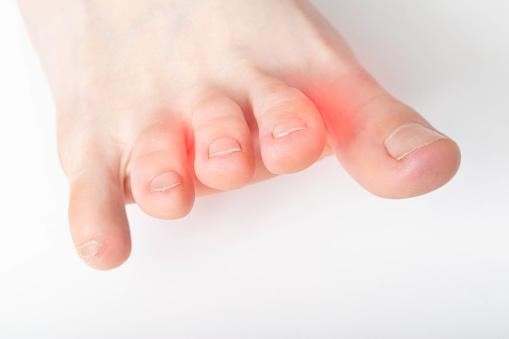Neuroma, or a pinched nerve or nerve tumor, is a painful condition with a benign growth of nerve tissue between the third and fourth toes. Along with pain, it is accompanied by a tingling, burning sensation, or numbness between the toes and the ball of the foot. The main symptom is the pain between the toes while walking. You can contact the best leading podiatrists in the city of Houston if you experience these symptoms.
More About Neuroma
Neuroma causes the nerves to thicken or enlarge due to compression and irritation. This condition can create a sharp pain, which can only be relieved by stopping your walk, rubbing the affected area, and removing your shoe. The pain is similar to having a stone or pebble in your shoe. Sometimes it may also cause complete numbness. Neuromas can prevent you from being active, whether participating in sports or simply walking without pain. You need to look for the leading podiatrists in Houston when you start experiencing neuroma symptoms. The earlier you address the condition, the better will be your chances of recovery.
Causes of Neuromas
Many factors can cause the formation of neuromas, but the exact cause is unclear. It could be due to:
- Biomechanical deformities like flat feet or high-arched feet. These conditions bring instability around the toe joints, thus leading to the development of neuromas.
- Trauma can also cause severe damage to the nerve, resulting in swelling or inflammation of the nerve.
- Repeated stress common to many occupations can also lead to the formation or aggravation of neuroma.
- Another leading cause of neuroma is improper footwear that squeezes the toes together. Hence, it would help if you avoided heels higher than two inches, as it can cause an increase in the pressure at the forefoot area.
Symptoms of Neuroma
The common neuroma symptoms include tingling and numbness in the ball of the foot, pain in the forefoot and between the toes, swelling between the toes, pain in the ball of the foot when placed under a weight.
Diagnosis of Neuroma
During the diagnosis, the doctor will feel your toes for any abnormalities. You may be recommended to undergo imaging tests like ultrasound, X-ray, or MRI.
Treatment of Neuromas
The treatment options vary with the level of intensity of each neuroma case. Identifying the condition early is important to avoid the need for surgery. The foot specialist may recommend thick-soled shoes with a wide toe box for an undeveloped neuroma. This is often adequate for undeveloped neuromas as it can help the condition diminish. However additional treatment or surgery may be required to remove the tumor for severe conditions.
Most treatment plans aim to relieve pressure on areas where the neuroma develops. Your foot will be first examined, and the affected area will be X-rayed. A treatment plan will be suggested based on your case. The treatment plans may include the following.
- Medication includes anti-inflammatory drugs and cortisone injections to ease the pain and inflammation.
- Padding and taping: The doctor may recommend special padding at the ball of the foot to change the dysfunctional foot function and relieve the symptoms.
- Orthotics: These are custom shoe inserts used to control foot function. It also reduces symptoms and prevents the worsening of the condition.
- Surgical options are recommended when early treatments fail and the condition progresses past the threshold. The surgical procedure for neuroma includes the removal of the inflamed and enlarged nerve. The surgery is usually conducted on an outpatient basis with a recovery time of a few weeks. The podiatric will describe the procedure to you and the expected results. Any pain post-surgery can easily be managed with medication.
Are There Any Home Remedies for Neuroma?
The home remedies for neuroma include:
- Wear shoes with sufficient room for the toes to move, low heels, and laces that allow for width adjustment.
- Wear shoes with thick, shock-absorbent soles and proper insoles designed to keep excessive pressure off the foot.
- Avoiding high-heeled shoes over two inches tall as they can cause undue strain on the forefoot.
- Massaging the affected area and resting the foot. This can temporarily alleviate neuroma pain. You may also use an ice pack to relieve pain and improve comfort.
- Using over-the-counter shoe pads can also relieve pressure around the affected area.
Prevention of Neuromas
Neuromas can likely be prevented by making sure that your exercise shoes have enough room in the front part so that your toes are not excessively compressed. You need to wear shoes with adequate padding in the ball of the foot and avoid prolonged time in shoes with a narrow toe box or excessive heel height.
Bottom Line
There is no need to endure unnecessary pain. You can consult a podiatric at the first sign of discomfort or pain. Neuromas can get worse if left untreated. Contact a team of experts to help you get back to a pain-free lifestyle and relieve the daily aches.


 Home
Home









